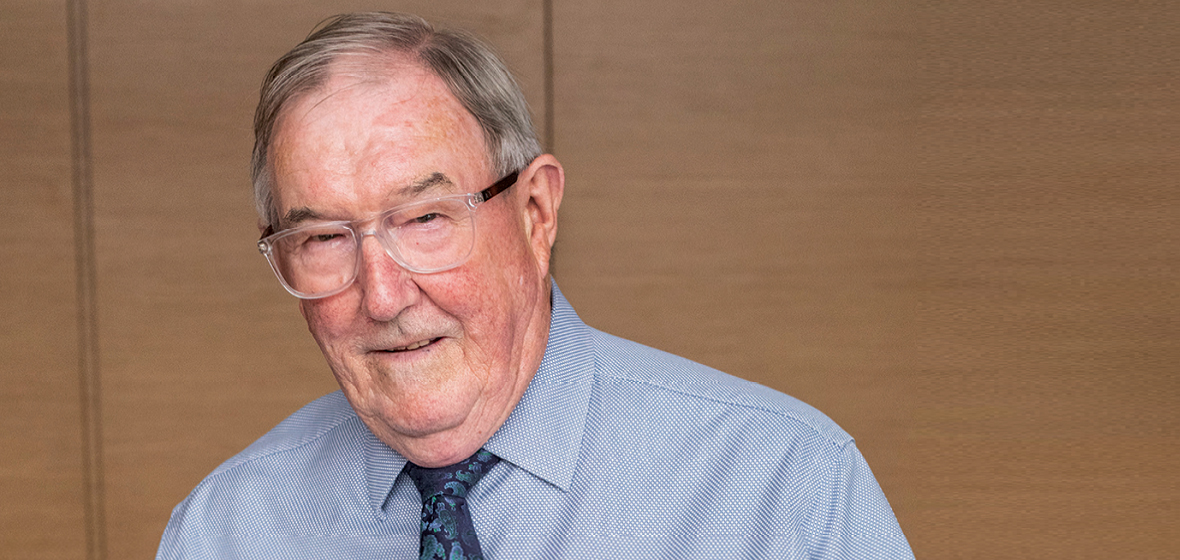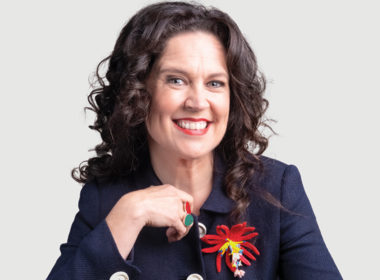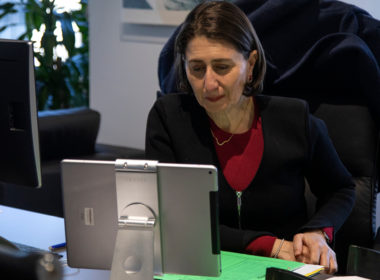Peter Rosier was so surprised to win the 2020 Law Society of NSW President’s Medal he initially thought his nomination was a hoax. Humility is a bedrock of the powerhouse property lawyer’s career, which began when he was associate to High Court Chief Justice Garfield Barwick and has spanned almost 50 years of practice. Over lunch he reveals his most memorable case and how football played a role in NSW’s electronic conveyancing goals.
In the lead-up to the pandemic, Peter Rosier shifted his Annandale legal practice to working from home. Yet he still talks about the inner-west village suburb in fond shorthand.
He knows the owners of Black Toast, the café LSJ suggested for lunch, by first name and asks the waiter with a smile upon our departure to “tell Les [the owner] that Peter the lawyer said hi”.
He recommends the best local takeaway place and recalls the transformation of Annandale and its surrounding neighbourhoods; the butcher shop he once frequented for lamb chops is now a trendy warehouse eatery.
Rosier, the principal solicitor of Rosier Partners Lawyers, has been an Accredited Specialist in property law for more than 20 years and a member of the Law Society’s property law committee. He was instrumental in his advocacy for electronic conveyancing.
In preparing the profession for the change he said some – even as recently as the last decade – were treating the digital move “like science fiction or something popping up out of a crystal cube”.
“They would say to me that it was never going to happen, it just won’t work. By 2013, I could say to them ‘don’t say it isn’t going to happen [because] it is happening’,” he tells LSJ.
“What we have seen, I think importantly, that made the COVID-19 pandemic much less of a problem for the legal profession … was the introduction of electronic conveyancing, which meant you didn’t have to toddle into town with a bunch of papers and exchange them for another bundle of papers or a cheque with a solicitor who also had to toddle into town.
“It was very convenient electronic conveyancing had almost reached its full flowering by the beginning of 2019. In my area of the law, the greatest concern in 2020 really has been how to deal with problems that arise from the fact that people can’t pay their rent, can’t pay their mortgages, landlords who can’t get rent, and also can’t get rid of tenants.”
Rosier notes wryly the swift uptake of electronic conveyancing, now mandatory in NSW, can be attributed to football.
Rosier and his wife this year farewelled their cherished rescue dog of 14 years, Jack, who occasionally popped up on video meetings. Discussions are underway for a new rescue pup.
“It’s entirely down to football. The reason I say that is the NSW Government wanted to pay for two stadiums so that rugged men and women could play football, and so they needed money to build two stadiums. And how did they find the money? They sold the Land Registry operations [which largely required people to physically attend to lodge],” he says.
“[That need] quashed the notion that electronic lodgement would remain voluntary and it became mandatory, all in the name of football stadiums.”
In half a century of practice, Rosier has seen and assisted with every kind of property problem imaginable. When asked to describe a memorable moment in his career, many with his credentials would not hesitate to catalogue their triumphs. Not so for Rosier, who pairs humility with a healthy sense of humour.
“I’ve had some memorable matters … even if not particularly memorable from the point of view of demonstrating my legal brilliance or in terms of the glory which came to shine upon me as a result,” he jokes, before recounting “an interesting, complex piece of litigation”.
“I was involved in a very unfortunate and sad case in which a brothel owner had committed suicide, locked in his office. It led to a very strange series of events. The son and his father, who was my client, had been engaged in money laundering.
“My client had decided that the way to avoid [paying tax on the earnings of the brothel] … was to pay amounts of slightly less than $10,000 around 15 banks throughout the suburbs of Sydney every second Friday. One of the consequences [for the father] was he was tried for money laundering.”
The case also involved a family provision claim as Rosier’s client’s son left a will allocating property to the brothel madam, along with a pet cat.
“My client didn’t succeed very well but it was noteworthy for the many intricacies … it was certainly memorable,” he says.
On pets, Rosier and his wife this year farewelled their cherished rescue dog of 14 years, Jack, who occasionally popped up on video meetings. After a sad goodbye, preliminary discussions are underway for a new rescue pup – perhaps a greyhound – to join the family in the near future.
Rosier does not believe he “won” the President’s Medal (“it suggests a competitiveness that I don’t think applies to this”) and almost a month on from the announcement, he is still floored.
“My surprise was simply because those who have received it before me were of such a high standard – plainly, they are considerable achievers in their various fields,” he tells LSJ.
“People like [2012 winner] Stuart Tipple, who of course was prominent in the Lindy Chamberlain matter and crusaded for her legally to the point of success. My colleague Tony Cahill [a joint winner in 2015] who is an amazing talent, and a person of huge intellect and great knowledge.
“They just had so obviously achieved things that it surprised me, to the point that I actually sent a reply to the email telling me I’d been made a finalist, asking ‘Is this a hoax?’ It turned out that it wasn’t. The standard of those who had received the medal previously was such that I just thought I had done nothing like any of those people.
“It has happened, but quite why still bewilders me.”





